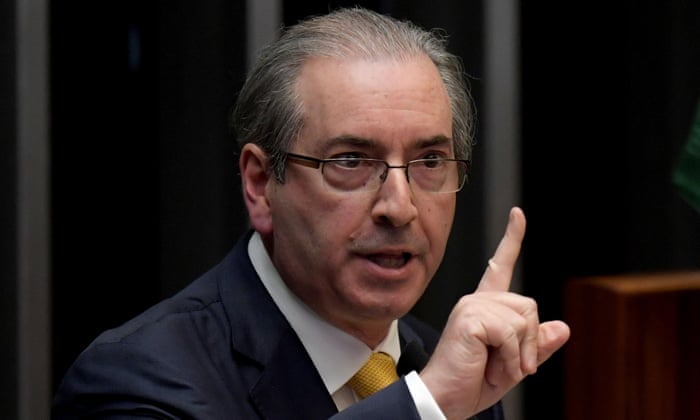A Brief Colonial History Of Ceylon(SriLanka)
Sri Lanka: One Island Two Nations
A Brief Colonial History Of Ceylon(SriLanka)
Sri Lanka: One Island Two Nations
(Full Story)
Search This Blog
Back to 500BC.
==========================
Thiranjala Weerasinghe sj.- One Island Two Nations
?????????????????????????????????????????????????Friday, March 31, 2017
Brazilian politician who orchestrated ousting of Rousseff sentenced to prison
Former
lower house speaker Eduardo Cunha convicted over role in Car Wash
corruption scandal and given 15 years in prison, which could be appealed
 Eduardo
Cunha, who was behind Dilma Rousseff’s impeachment, was forced from his
political post in July and arrested in October on accusations of
corruption. Photograph: Evaristo Sa/AFP/Getty Images
Eduardo
Cunha, who was behind Dilma Rousseff’s impeachment, was forced from his
political post in July and arrested in October on accusations of
corruption. Photograph: Evaristo Sa/AFP/Getty Images
Eduardo Cunha, the former head of Brazil’s lower house of congress, has
been sentenced to more than 15 years in prison for his role in the vast
Car Wash corruption scandal.
Cunha’s conviction led to one of the stiffest penalties handed down to
such a senior politician since the end of the dictatorship era in 1985,
but public satisfaction with the judgment will be mixed with concern
that he could yet win an appeal and that many other powerful figures
accused of similar crimes remain unpunished.
Sergio Moro, a Curitiba lower court judge, found Cunha – a rightwing
evangelical Christian – guilty of corruption, money laundering and
currency law evasion in connection with a $1.6m bribe he received from a
deal by the state-run oil firm Petrobras to buy exploration rights in
Benin. The judgment also noted a pending case in Switzerland related to
$2.3m stashed in a secret bank account in the European country.
“The responsibility of a federal parliamentarian is enormous, and so,
therefore, is his guilt when he commits crimes. There can be no more
serious offence than the betrayal for personal gain of a parliamentary
mandate and the sacred trust of the people,” the judged noted in his
ruling.
Public opinion is firmly behind the conviction. As recent mass protests have indicated, many Brazilians are angry at endemic corruption and the impunity long enjoyed by senior office holders.
Cunha – often compared to Frank Underwood in House of Cards due to his
reputation as an arch-manipulator – has long been one of the most
unpopular figures in the country.
He orchestrated the impeachment of the Workers party president Dilma Rousseffin an attempt to evade justice. But – amid a public outcry – he was forced to stand down soon after and was then expelled from congress, stripping him of the immunity of office.
Advertisement
In his resignation speech, Cunha warned that other lawmakers would
follow him to jail: “It’s the price I’m paying for the country to be
free of the Workers party. They are charging me the price for leading
the impeachment process,” he told lawmakers. “Tomorrow, it will be you.”
But although dozens of senators, deputies, governors and the former presidents Luiz Inácio Lula da Silva, Rousseff and Fernando Collor de Mello have either been charged or are under investigation,
it is far from clear that they will be brought to trial and convicted.
The current president, Michel Temer, has been named in several plea
bargains as a senior figure in the scandal, but he has not been charged
by prosecutors.
In recent months, there have also been several signs that the Car Wash inquiry is being weakened both by the mysterious death of a senior judge,
political appointments to the supreme court and growing efforts in
congress to pass an amnesty bill and outlaw plea bargain deals.
Should these trends continue, Cunha’s conviction could also prove to be the only one of its kind.

